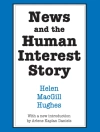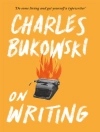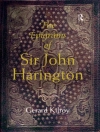“On Beckett: Essays and Criticism” is the first collection of writings about the Nobel Prize–winning author that covers the entire spectrum of his work, and also affords a rare glimpse of the private Beckett. More has been written about Samuel Beckett than about any other writer of this century – countless books and articles dealing with him are in print, and the progression continues geometrically. “On Beckett” brings together some of the most perceptive writings from the vast amount of scrutiny that has been lavished on the man; in addition to widely read essays there are contributions from more obscure sources, viewpoints not frequently seen. Together they allow the reader to enter the world of a writer whose work has left an impact on the consciousness of our time perhaps unmatched by that of any other recent creative imagination.
Cuprins
The Essential Beckett: A Preface to the Second Edition – S. E. Gontarski; A Beckett Chronology; Acknowledgments; Crritics and Crriticism: “Getting Known”– introduction by S. E. Gontarski; PRELIMINARIES: Beckett and “Merlin” – Richard W. Seaver; Samuel Beckett and the Visual Arts: The Embarrassment of Allegory – Dougald Mc Millan; When is the End Not the End? The Idea of Fiction in Beckett – Wolfgang Iser; THE PAGE: “Murphy” and the Uses of Repetition – Rubin Rabinovitz; “Watt” – Lawrence E. Harvey; “Mercier and Camier”: Narration, Dante, and the Couple – Eric P. Levy; Molloy’s Silence – Georges Bataille; Where Now? Who Now? – Maurice Blanchot; The Voice and Its Words: “How It Is”– J. E. Dearlove; The Unnamable’s First Voice? – Chris Ackerley; Between Verse and Prose: Beckett and the New Poetry – Marjorie Perloff; “Worstward Ho” – Dougald Mc Millan; THE STAGE: Mac Gowran on Beckett – interview by Richard Toscan; Blin on Beckett – interview by Tom Bishop; Working with Beckett – Alan Schneider; Notes from the Underground: “Waiting for Godot” and “Endgame” – Herbert Blau; Beckett Directs “Godot” – Walter D. Asmus; Beckett Directs: “Endgame” and “Krapp’s Last Tape” – Ruby Cohn; Literary Allusions in “Happy Days” – S. E. Gontarski; Counterpoint, Absence, and the Medium in Beckett’s “Not I” – Paul Lawley; Rehearsal Notes for the German Premiere of Beckett’s “That Time” and “Footfalls” – Walter D. Asmus; “Footfalls” – James Knowlson; Samuel Beckett and the Art of Radio – Martin Esslin; Light, Sound, Movement, and Action in Beckett’s “Rockaby” – Enoch Brater; Beckett’s “Ohio Impromptu”: A View from the Isle of Swans – Pierre Astier; “Quad” and “Catastrophe” – S. E. Gontarski; CODA: Burroughs with Beckett in Berlin – edited by Victor Bockris; Notes on Contributors
Despre autor
S. E. Gontarski is a writer, scholar and director, at whose request Samuel Beckett wrote the short play “Ohio Impromptu” (1981). Gontarski is the Robert O. Lawton Distinguished Professor of English at Florida State University, where he is specializes in twentieth-century Irish studies, in British, US and European modernism, and in performance theory.












